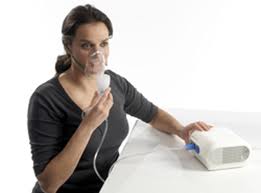DEADLY diseases are making a comeback because more parents are refusing to vaccinate their children.
Health authorities warn children are at risk of becoming seriously ill and dying from whooping cough, measles, mumps, rubella, diphtheria and tetanus because they are not having their jabs.
Parents who refuse to immunise believe the vaccines are harmful, but doctors say they are ill-informed and putting the entire community at risk."It is unfair to the child as the child is too young to make an informed decision, and these are very nasty diseases that can kill," infectious diseases expert Dr Jeremy McAnulty said.
"The scientific evidence is overwhelming: immunisation has effectively got rid of many diseases and minimised others, and is one of our greatest public-health achievements," NSW Health's director of Health Protection addedAround one per cent of parents don't immunise their children, but in some pockets of Sydney's north shore and eastern suburbs, the rate of conscientious objectors is eight per cent, and as high as 21 per cent in the Byron Shire.
"If we don't maintain high rates of immunisation, we risk many of these deadly diseases reappearing," he said.
 |
| Chicken Pox Blisters |
Multiple cases of whooping cough, measles, mumps, rubella, diphtheria and tetanus have been recorded on the National Notifiable Diseases Surveillance System this year.
 |
| Mumps - he is lucky, one on one side |
Tragically, an unimmunised 22-year-old from Brisbane died of diphtheria last month after contracting the disease from a traveller.
 | ||
| Diptheria - it can form a membrane which closes the whole throat |
There have been more than 40 cases of measles reported in NSW so far this year, and almost 5000 of whooping cough - the most of any state.
 |
| Baby with Whooping Cough |
Seven babies have died from whooping cough in the past two years, including one on the north coast around Easter.
 |
| Measles |
Premier Barry O'Farrell, who on Friday had a whooping cough booster shot, said the state government needed to review strategies to combat conscientious objectors, but ultimately it was up to parents. "We shouldn't be contracting to the state what parents need to take responsibility for," Mr O'Farrell said.
 | |
| Rubella |
"We need to ensure we have the information out there to make sure the myths and misinformation on the internet are combated. It needs to be a constant effort because it does worry me there is a lack of immunisation. "It's been a good seven years since my youngest was four and, like many of us, you make the assumption when you don't have young kids, you're not at risk."
 | |
| Baby with Tetanus |
Google "vaccines" and one of the first sites to pop up is the Australian Vaccination Network (AVN) that upholds the now-discredited and withdrawn Andrew Wakefield study into an alleged link between autism and the measles, mumps and rubella, or MMR, vaccine.
 | |
| Tetanus |
Dr McAnulty said authorities had no control over what was published online, but the science in favour of vaccination was overwhelming. The National Immunisation and Research Surveillance Centre's Professor Robert Booy said: "Immunisation has brought a host of life-threatening infectious diseases under control to the point where experienced GPs can no longer recognise diseases, such as measles, because they rarely see them."
 |
| Meningitis Rash |
 | |
| Baby with Meningitis |
One in 1000 children who contract measles will die, and one in 1000 will develop severe brain swelling. Professor Booy said the vaccine's side-effects were minimal by comparison. "Some will develop a slight fever or a rash, and one in 100,000 will experience some brain swelling, but it's 100 times less risk than the risks of the disease itself."
 | |
| Baby with pneumococcal |
Many vaccines do contain live viruses and preservatives, such as mercury and formaldehyde, which are known neurotoxins, which some parents are concerned about. But Professor Booy said the risks from the mercury and formaldehyde levels were negligible.Sydney naturopath Fiona Kane, who volunteers with the AVN, said most naturopaths opposed vaccination.
 | |
| Little girl with pneumococcal |
"I like the idea of vaccines - I just have a lot of doubts about them and what's in them, mercury and aluminium. My problem is we're not allowed to question them." Sandra Rogers, Australian Traditional Medicine Society president, said the society did not take a position on the subject of vaccinations because it was so contentious.
 | |
| Baby with gangrene due to HIB |
Vaccines for Hib ( Haemophilus influenzae, type b ) and pneumococcal, causes of potentially fatal meningitis, were brought in 10 years ago.
 |
| This is caused by HIB |
"Those diseases used to affect 400-500 children a year, and each kill around 20 children - it just doesn't happen anymore," Professor Booy said.
 |
| Gross swelling caused by HIB |























